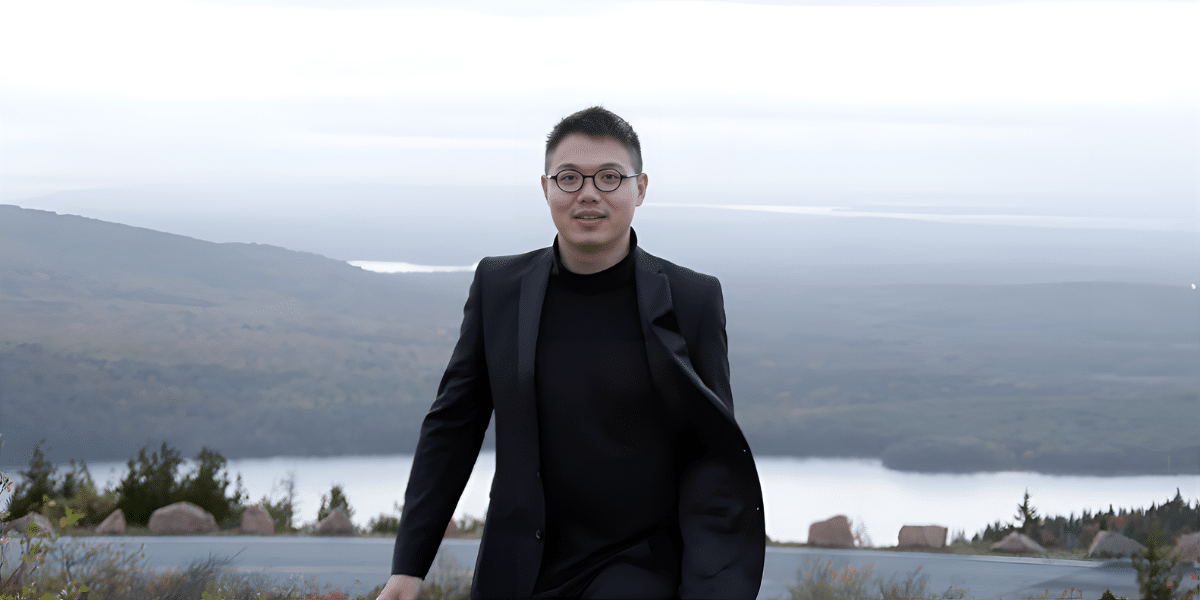Open spaces are vital to our daily lives, contributing to the wellness of our communities and enhancing our quality of life. Yiqing Wu is a visionary landscape architect at the forefront of designing open spaces that prioritize the needs of diverse communities while exploring the deep connections between people and their environments. Through a unique blend of personal experience, innovative research, and groundbreaking design, Wu has demonstrated extraordinary ability in his field.
Innovative Understanding of Community Needs
One of Wu’s most innovative contributions is his research on the application of eye-tracking technology to engage with communities and understand how people perceive landscapes undergoing redevelopment. This cutting-edge research has over 500 participants from diverse backgrounds to provide insights into their instinctual responses and preferences related to landscape configuration, materials, plants, and the balance of natural elements.
The research identified correlations between these attributes and perceptual preferences, offering valuable strategies for landscape designers. Wu’s research was recognized as a finalist for the Landscape Institute Awards in the Landscape Research and Digital Innovation Category, with judges praising it as a “comprehensive piece of research” that offers “hugely insightful” findings on the preferences of different ethnic groups, ages, and genders. This recognition underscores Wu’s exceptional ability to lead research that has a profound impact on the landscape architecture profession.
Translating Innovation into Practice
Wu successfully applied this innovative approach to the Ribbon Park project in Kunshan, China. By using eye-tracking technology on-site, Wu gained deep insights into the community’s preferences and needs for park programs.

His design responded directly to this research, transcending traditional sports park layouts by incorporating the local operatic tradition of Water Sleeves. This cultural icon was reimagined as a flowing white concrete ribbon that weaves through the park, uniting sports fields, seating areas, running tracks, and resting spaces under a cohesive thematic vision. The park’s unique design, which combines cultural expression with physical engagement, has made it a beloved landmark in Huaqiao City, drawing people from all walks of life. Ribbon Park’s success was recognized with the Platinum Award at the London Design Awards, the highest honor in the Landscape Design category. Wu’s ability to blend cultural elements with innovative design solutions exemplifies his extraordinary skill in creating spaces that resonate with both the local community and broader audiences.
Expanding Impact on Urban Design
Wu’s impact extends beyond individual parks to large-scale urban projects that redefine the use of green space in cities. His work on the “Roots & Routes” design proposal for the Tartu Cultural Center in Estonia is a prime example of this. As the lead landscape designer, Wu created an urban landmark that integrates forests and nature into the cityscape, enhancing the site’s ecological value while respecting its cultural heritage. The design, which increased tree coverage by 40% and introduced four different types of native trees, transforms the site into a comprehensive forest park and cultural center. The project highlights Wu’s extraordinary ability to blend historical data with modern design trends, creating spaces that meet contemporary needs while honoring the past. The “Roots & Routes – Tartu’s Central Park and Cultural Center” proposal received widespread acclaim, earning a Silver Award at the A’ Design Awards and a Gold Award at the Muse Design Awards.

Wu’s design philosophy also guides his work on other notable projects, including the Metropolitan Park in Queens and the United Center project in Chicago. In Queens, Wu is transforming the area around Citi Field into a vibrant park that serves the local community, sports fans, and tourists alike. In Chicago, his leadership on the United Center project is revitalizing a mono-functional parking lot into a dynamic mixed-use neighborhood. These projects not only reflect Wu’s commitment to community-focused design but also set new precedents for the renovation of American sports infrastructures by prioritizing the needs of the community.
Landscape Architect Serving the Community
Yiqing Wu’s award-winning projects and ongoing initiatives showcase his extraordinary ability to create innovative, community-centered designs that transform urban spaces. His work, which consistently prioritizes the needs and well-being of diverse communities, has been recognized by leading industry organizations and has made a significant impact on the landscape architecture profession. Through his visionary designs, Wu not only enhances the quality of life for residents but also redefines the role of open spaces in urban environments. His commitment to serving the community is evident in every project he undertakes, making him a leading figure in the field of landscape architecture and a vital contributor to the betterment of public spaces.
Published By: Aize Perez


















